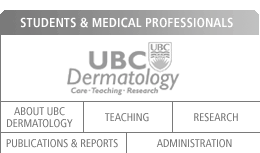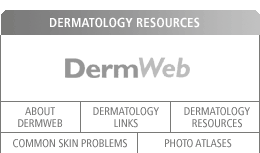|
 |
 |
 |
 Psoriasis is an incurable skin condition that can be improved with treatment. It is a rapid growth rate of skin cells causing chronic red, scaly patches on the skin. The affected areas can ranges from a few spots located anywhere on the body to large areas. It is important to know that psoriasis is not contagious and will not spread from one part of the body to another or from person to person. Knowledge about the treatments and how to get the best possible results is very important. Psoriatic arthritis can affect people of all ages and is more often seen in people with widespread psoriasis than with lesser forms. The diagnosis psoriatic arthritis must be confirmed by Medical examination. Psoriasis is an incurable skin condition that can be improved with treatment. It is a rapid growth rate of skin cells causing chronic red, scaly patches on the skin. The affected areas can ranges from a few spots located anywhere on the body to large areas. It is important to know that psoriasis is not contagious and will not spread from one part of the body to another or from person to person. Knowledge about the treatments and how to get the best possible results is very important. Psoriatic arthritis can affect people of all ages and is more often seen in people with widespread psoriasis than with lesser forms. The diagnosis psoriatic arthritis must be confirmed by Medical examination.
Diagnosis
- Examination of the skin.
- Microscopic examination of the skin (biopsy) may be done
- Blood work is not needed.
Cause
- Unknown
- Hereditary and genetic factors are important
- Not every child of a parent with psoriasis will develop it.
- Allergies, infections, dietary deficiencies or excesses, and nervous tension do not cause psoriasis.
Personal impact
- Does not affect overall general health.
- Can cause a great deal of skin discomfort and emotional embarrassment.
- Most people who have psoriasis only have a small amount and while uncomfortable, it does not alter their lifestyle.
- 10 percent of psoriasis cases, people develop a form of arthritis called psoriatic arthritis.
- No present cure. A number of drugs and treatments aid in relieving or control of it.
- In most cases, psoriasis is persistent. It does not necessarily become worse with age.
- Can occur at any age from infancy to the elderly.
- Psoriasis may come and go without any obvious reason often with long periods of no symptoms.
Actions known to aggravate psoriasis:
- Skin injury and irritation due to rubbing, scratching, and sunburn. Psoriasis develops for the first time in sites of skin injury from cuts, burns or infections.
- Sun exposure for most people with psoriasis, moderate sun exposure is very helpful, but too much sun causes psoriasis to flare. A small number (perhaps 10 percent) of people may find their psoriasis worsens with sun exposure.
- Diet - No consistent link has yet been found however certain important guidelines should be followed.
- A healthy balanced diet is important for personal good health.
- Some people find their psoriasis is worse if they have weight problems. Weight loss is helpful in controlling psoriasis.
- Some people find that alcohol of any type will flare their psoriasis.
- Stress and anxiety can make psoriasis worse. It is important to try to find ways to mitigate stressful situations.
- Medications: In some patients some non-psoriasis drugs can make psoriasis worse. These drugs include gold, lithium, and beta-blockers for hypertension such as Inderal. Inform your dermatologist you are taking medications.
- Infections: Some throat and upper respiratory tract infections—especially streptococcal infections can make your psoriasis worse. This is most commonly seen in children and adolescents.
|
|
|
 |
|

